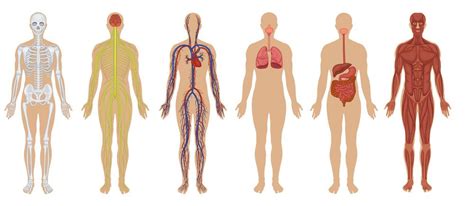Optimize macros for fat loss & muscle retention?

The Delicate Balance: Fat Loss vs. Muscle Retention
Achieving a lean physique often involves the challenging pursuit of fat loss while simultaneously preserving hard-earned muscle mass. This seemingly contradictory goal is where the strategic optimization of macronutrients becomes paramount. Simply cutting calories isn’t enough; the ratio of protein, carbohydrates, and fats in your diet profoundly influences whether your body taps into fat stores or muscle tissue for energy during a caloric deficit.

Why Macronutrient Ratios Matter for Body Recomposition
Your body’s response to a caloric deficit is largely dictated by your macronutrient intake. A well-structured diet ensures that you provide sufficient building blocks for muscle repair and growth (even in a deficit), adequate energy for performance, and essential nutrients for overall health, all while encouraging fat oxidation. Understanding each macro’s role is the first step.
Protein: Your Muscle’s Best Friend
Protein is the cornerstone of any fat loss and muscle retention strategy. It provides the amino acids necessary for muscle repair, recovery, and growth. Crucially, a higher protein intake also promotes satiety, helping to curb hunger during a caloric deficit. Furthermore, protein has a higher thermic effect of food (TEF) compared to carbs and fats, meaning your body burns more calories digesting it. Aim for a significantly elevated protein intake, typically ranging from 1.6 to 2.2 grams per kilogram of body weight, and sometimes even higher (up to 2.5-3.0g/kg) for very lean individuals in a deep deficit or those engaging in intense training.

Carbohydrates: Fuel for Performance and Recovery
While often villainized in fat loss discussions, carbohydrates are essential for energy, athletic performance, and proper thyroid function. However, during a caloric deficit, their intake needs to be managed carefully. Prioritize complex carbohydrates from whole foods like vegetables, fruits, whole grains, and legumes, which provide fiber, vitamins, and minerals. The ideal carbohydrate intake can vary widely based on activity level and individual tolerance, but a common strategy is to cycle carbs, consume them around workouts, or simply maintain a moderate intake that supports energy levels without hindering fat loss. Avoiding drastic carb restriction often helps preserve muscle glycogen and exercise performance.
Dietary Fats: Essential for Health and Hormones
Fats are vital for hormone production, nutrient absorption, and overall cellular function. Despite being calorie-dense, healthy fats from sources like avocados, nuts, seeds, olive oil, and fatty fish should not be eliminated. A minimum intake of 0.5 to 1.0 grams per kilogram of body weight is generally recommended to support hormonal health and satiety. Too little fat can negatively impact energy levels, mood, and testosterone production, which are all crucial for muscle retention.

Crafting Your Macro Strategy: A Practical Approach
Once you’ve established your caloric deficit (which should be moderate, typically 20-25% below maintenance), you can then allocate your macros. A common starting point for fat loss and muscle retention might look something like:
- Protein: 30-40% of total calories
- Fats: 20-30% of total calories
- Carbohydrates: 30-40% of total calories
These are general guidelines and will require individual adjustment based on your body’s response, activity level, and training intensity. Tracking your intake and progress is crucial for fine-tuning these percentages.

Beyond Macros: The Holistic Picture
While macro optimization is critical, it’s part of a larger ecosystem. Consistent resistance training is non-negotiable for signaling to your body that muscle mass is still needed, even in a deficit. Adequate sleep (7-9 hours per night) and proper hydration are also foundational, impacting hormone regulation, recovery, and overall metabolic function. Stress management plays a role, as chronic stress can elevate cortisol, potentially hindering fat loss and muscle preservation.

Conclusion
Optimizing your macronutrients for fat loss and muscle retention is a sophisticated strategy that moves beyond simple calorie counting. By prioritizing protein, strategically managing carbohydrates, and ensuring adequate healthy fat intake, alongside consistent resistance training, sufficient sleep, and stress management, you create an environment where your body is more likely to tap into fat stores for energy while preserving valuable muscle tissue. This deliberate approach is key to achieving a truly transformed and sustainable physique.









